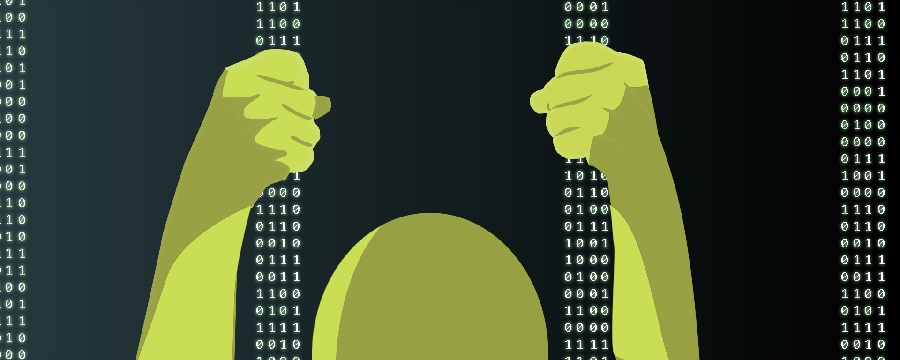Winston Churchill once famously said “Democracy is the worst form of government, except for all the others.” The same could be said for cash bail. While it’s certainly not a perfect system no one has come up with a better way to safeguard the presumption of innocence. Remember, in the American legal system a person is presumed innocent until proven guilty. Because of that forcing someone to molder in jail until they can have their day in court is extremely problematic from a legal perspective. At the same time however, simply letting people go and taking their word that they’ll show up to face the charges against them is also a dubious proposition. Bail bonds allow the innocent to remain free while awaiting trial and provides an incentive for the accused to fulfill their obligation to appear in court.

Goodbye Bondsman, Hello Big Data
As we said there is no doubt that the bail bonding system in America could use an overhaul to level the playing field a bit. But discarding it entirely simply because it may not be 100% fair to everyone all the time would be throwing the baby out with the bathwater. But that’s exactly what some so-called “progressive” criminal justice reformers want to do. They want to completely discard the bail system and replace it with a computer algorithm that leverages big data to predict who will flee and who will be a danger if they’re released. In other words, if the computer determines you’re a flight risk or danger to society the judge can keep you locked up indefinitely. While that might sound good on the surface it raises a number of troubling questions:
Who is Writing These Algorithms?
Computers are unbiased. Right? After all, they’re machines. And machines don’t make mistakes. They simply carry out their programming. So using a computer algorithm to determine who walks and who rots in jail should eliminate racism and classism from the bail system. While it’s an interesting concept it raises one very thorny question: Who is writing these algorithms?
If someone in Adams County, Broomfield County, Weld County or Denver is held indefinitely as a result of a computer program it’s not the computer that’s deciding to hold them, it’s the programmer who wrote the algorithm. And what’s to prevent that programmer from codifying his or her own prejudices and hatreds into the computer code? Nothing. That’s right. Furthermore, virtually no one employing these algorithms has any idea how they work. So proper oversight is nearly impossible.
What if the Computer System is Hacked?
On October 4th 2018 Pentagon officials were informed that their computer system had been hacked. If the Pentagon’s computer system can be hacked what’s to prevent the Broomfield County Court system from being hacked and bail algorithms altered? While the state and county proclaim loudly that such a thing could never happen the fact is if it can happen to the Pentagon it can happen to your local court. It took the army months to discover someone had invaded their system. How many people would have to rot in jail before state officials discovered they’re there because someone hacked the system and altered their precious bail algorithm?
Who is Going to Pay To Monitor Those The Computer Has Released?
Right now when someone is released on bond it’s largely up to the bondsman to keep track of them. If they jump bail it’s the bonding agent who hires and pays the bounty hunter to track them down and return them to custody. If bail agents are eliminated who pays to keep track of those released by the computer algorithm? That’s right, you do. The taxpayer. Furthermore if the released individual fails to show up in court who pays to track them down? Right again. You, the taxpayer, do. And if your county runs out of money to track down fugitives they are then free to walk the streets without fear of being returned to jail.
How Are States Like Colorado Going to Replace All That Bail Money?
When someone out on bond fails to appear in court their bail amount is forfeited to the county where they were supposed to appear. Every year this forfeited bail provides millions of dollars to local coffers. If the current bail system is eliminated how are local governments going to replace that revenue? If you think they’re likely to come after you, the taxpayer, to make up for the shortfall you’re right. So think about that when it comes time to vote on whether to replace the bail system with an algorithm.
What if the Algorithm is Wrong?
The last and most obvious question is: “What if the algorithm is just plain wrong?” The argument for replacing the current bail system is that it is potentially unfair to some defendants. But what if the bail algorithm is something less than perfect? How many people who represent no actual flight or safety risk will be unfairly held behind bars, perhaps indefinitely, because one line of computer code wasn’t perfect? And who is going to analyze the code to root out these imperfections? Politicians? Judges? Taxpayers?
The Bottom Line
Replacing an unfair bail system that can be fixed with an unfair computer system that can’t is no solution to what ails the American justice system. The fact is that change does not always equals progress and just because something is called “progressive” doesn’t mean that it actually is.